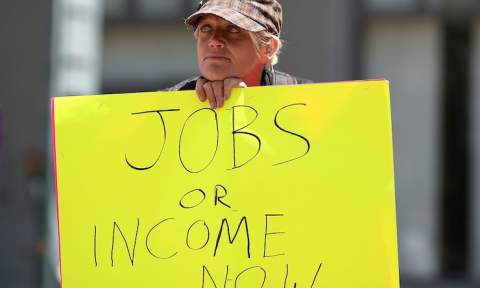Members of Congress returning to work this week are plunging immediately into policy battles that will shape their campaigns for the November elections.
The Senate is poised to debate a plan to revive expanded benefits for the long-term unemployed, which lapsed in December, but Democrats on Sunday were still trying to gather needed votes from Republicans. With a procedural vote coming as soon as Monday, only one GOP senator had publicly declared support for the measure. Four more are needed.
In the House, Republican leaders are spotlighting what they say are more problems with the Affordable Care Act, starting the year with a vote on legislation intended to safeguard against potential security breaches in the health law's insurance marketplace.
Political strategists on both sides expect the debates to position their parties for November, even if the legislation fails. Democrats want to enter the campaign season with a slate of proposals aimed at income inequality, which will include the jobless-benefits extension, a bill to boost the federal minimum wage and other measures. They believe Republicans would pay a political price if they stand in the way of policies that polls show are popular among voters of both parties.
"If on the first day of the new session, the Republican Party says they won't even support [an] unemployment benefit extension…they're going to show themselves so far out of the mainstream, it's going to hurt them in the election," Sen. Charles Schumer (D., N.Y.) said Sunday in a television appearance.
Similarly, the House health-law measure is a clear signal that, even though the health law's major provisions have taken effect, Republicans will continue to focus on its troubled rollout as part of a broader critique of the Obama administration and Democratic governance. That is central to their strategy for winning control of the Senate, where Democrats' majority hinges in part on incumbents fighting for re-election in conservative states where Mr. Obama and the health law have been unpopular.
"These steps will be part of the overall effort to protect the American people from the harmful effects of Obamacare by ultimately repealing and replacing the law with patient-focused reforms," said House Majority Leader Eric Cantor (R., Va.), in a memo to House Republicans last week.Read the rest of the story HERE.
If you like what you see, please "Like" us on Facebook either here or here. Please follow us on Twitter here.





No comments:
Post a Comment